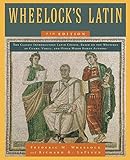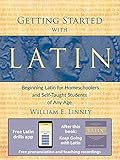
Throughout centuries, humans have found countless ways to express love and affection towards the most nurturing presence in their lives. From times immemorial, different cultures have used their native languages to capture the essence of this treasured bond. In the rich tapestry of words that exist in various tongues, one might wonder: what are the terms used to refer to the cherished female figure, who brings warmth, care, and guidance?
Exploring this question leads us back in time to the fascinating realm of Latin, the mother tongue of the ancient Romans. In this language, known for its eloquence and sophistication, a special place was reserved for the concept of motherhood. Behind this concept lies a complex web of emotions, traditions, and roles that were deeply cherished and celebrated by society.
Thus, in this quest to unravel the mysteries of the ancient Latin language and its expression of motherhood, we find ourselves diving into a vast ocean of words that capture the essence of the maternal figure. While the very word “mother” may be absent, the sentiment it evokes is beautifully and intricately depicted through a variety of terms, each offering a unique perspective on the tender bond that spans across generations.
Exploring the Latin Word for “Mother”
In the realm of ancient Latin language, there exists a profound term that encompasses the cherished role of a “mother.” Delving into the linguistic realms of this ancient civilization, we embark on a captivating exploration to uncover the Latin word denoting this significant familial figure. Through this linguistic journey, we shall unravel the essence and significance of the Latin term for “mother,” unravelling a depth that reverberates across history and culture.
The Root of Maternal Love
At the heart of every language lies a word that embodies the purest form of love and nurturing, the foundation of which is laid by the remarkable bond between parent and child. In Latin, this sacred term carries a resonance that transcends time and continues to resonate through the annals of history. By diving into the etymology of the Latin language, we discover the roots of the word that encapsulates the essence of maternal love, uncovering a tapestry woven with deep-rooted emotions and cultural significance.
The Latin Equivalent
Our exploration leads us to the Latin term equivalent to the word “mother,” an evocative expression that encapsulates the tender affection, guidance, and protection showered upon a child by their maternal figure. Within the realm of Latin, this word echoes the profound role and significance that mothers have held throughout time, serving as a pillar of strength, a source of unconditional love, and a beacon of wisdom and support.
Understanding the Latin Term for “Mom”
In the realm of ancient language, Latin holds a trove of fascinating terms that reflect the cultural values and familial bonds of its speakers. When exploring the Latin language, it becomes apparent that there are various ways to refer to the cherished figure of a mother. Delving into the nuances of the Latin term for “mom” allows us to gain insights into the ancient Roman society’s views on motherhood, family, and the nurturing role of women.
The Maternal Figure in Ancient Rome
In ancient Rome, the maternal figure played a central role in the upbringing and education of children. The Romans held a deep reverence for the concept of motherhood, recognizing the profound influence that mothers had on their offspring’s character and development. Mothers were regarded as the primary caregivers, providers of love, and sources of wisdom, guiding their children through life’s challenges.
The Latin Word for “Mom”
While we commonly use the word “mom” today, Latin offers a rich vocabulary to describe a motherly figure. In this ancient language, the term “mater” captures the essence of a loving and nurturing mother. The word “mater” not only represents the biological connection between a mother and child but also encompasses the emotional and spiritual bond shared between them.
Symbolism and Cultural Significance
Beyond its literal meaning, the Latin term “mater” carries symbolism and cultural significance. It represents the embodiment of selflessness, devotion, and unconditional love that mothers epitomize throughout history. The concept of “mater” transcends mere biological motherhood, encompassing all aspects of motherly care and compassion that extend beyond blood ties.
Understanding the Latin term for “mom” not only expands our linguistic knowledge but also provides an opportunity to appreciate the profound role that mothers have played in shaping societies throughout the ages. By exploring the ancient language of Latin, we can gain a deeper understanding and reverence for the timeless values associated with motherhood.
Exploring the Latin Equivalent of “Mother”
Latin, known for its intricacy and poetic nature, offers several words to capture the essence of what we commonly refer to as “mother”. Within the Latin lexicon, we find a multitude of terms that convey different aspects of the maternal bond. By examining these various expressions, we gain insight into the diverse roles and relationships that mothers have played throughout history.
- Genetrix: This Latin word embodies the concept of a biological mother, emphasizing the role of giving birth and nurturing.
- Mater: Similar to the English word “mother”, this term represents the nurturing and caregiving aspect of the maternal figure.
- Parentes: This word signifies the concept of both parents and encompasses the role of a mother within a larger family unit.
- Matrona: While often used to refer to married women in Roman society, this term also encompasses the nurturing qualities associated with motherhood.
It is interesting to note that these Latin terms not only describe the biological relationship between a mother and her child but also signify the emotional and social importance of motherhood in ancient societies. Each word carries its own connotations and nuances, reflecting the different facets of the maternal role.
By delving into the Latin language and its various ways of expressing “mother”, we gain a deeper understanding of the universal significance of this revered figure. Exploring the rich linguistic heritage of Latin allows us to unearth the complexities and cultural values associated with motherhood, spanning across time and regions.
Discovering the Latin Equivalent for “Mother”
In this section, we will uncover the Latin translation of the term that refers to the female figure who brings us into this world, nurturing and caring for us unconditionally. We will explore the historical significance of the Latin language and the importance of understanding different terms used to address this revered familial relation in various cultures.
The Richness of the Latin Language
Latin stands as a testament to the longevity and influence of the ancient Roman civilization. This classical language, known for its eloquence and precision, has woven its way into modern-day vocabulary, including the countless terms of endearment used to express the cherished bond between a child and their mother.
Latin’s influence extends beyond the confines of Rome, permeating several European languages, architecture, art, and legal systems. Understanding Latin allows us to tap into the roots of our linguistic heritage and connect with centuries of knowledge and wisdom.
Exploring the Latin Equivalent
While the word for “mother” may differ across languages, in Latin, the term that encapsulates the essence of this revered figure is “mater.” This simple yet profound word carries with it a profound sense of love, devotion, and nurturing that mothers provide throughout a child’s life. It captures the timeless and universal bond between a child and their creator.
To fully grasp the significance of “mater,” it is crucial to delve into the culture and history of the Latin-speaking world. From early Roman mythology to the influence of Christianity, the concept of motherhood has evolved, leaving us with the term that resonates the most in the Latin language.
Learning the Latin translation for “mom” opens a gateway to understanding the richness and complexity of human connections across cultures and time periods. With each linguistic discovery, we gain a deeper appreciation for the importance of language in shaping our identities and relationships.
So, join us on this linguistic journey as we uncover the layers of meaning behind the Latin translation for “mom” and explore the profound role of mothers throughout history.









